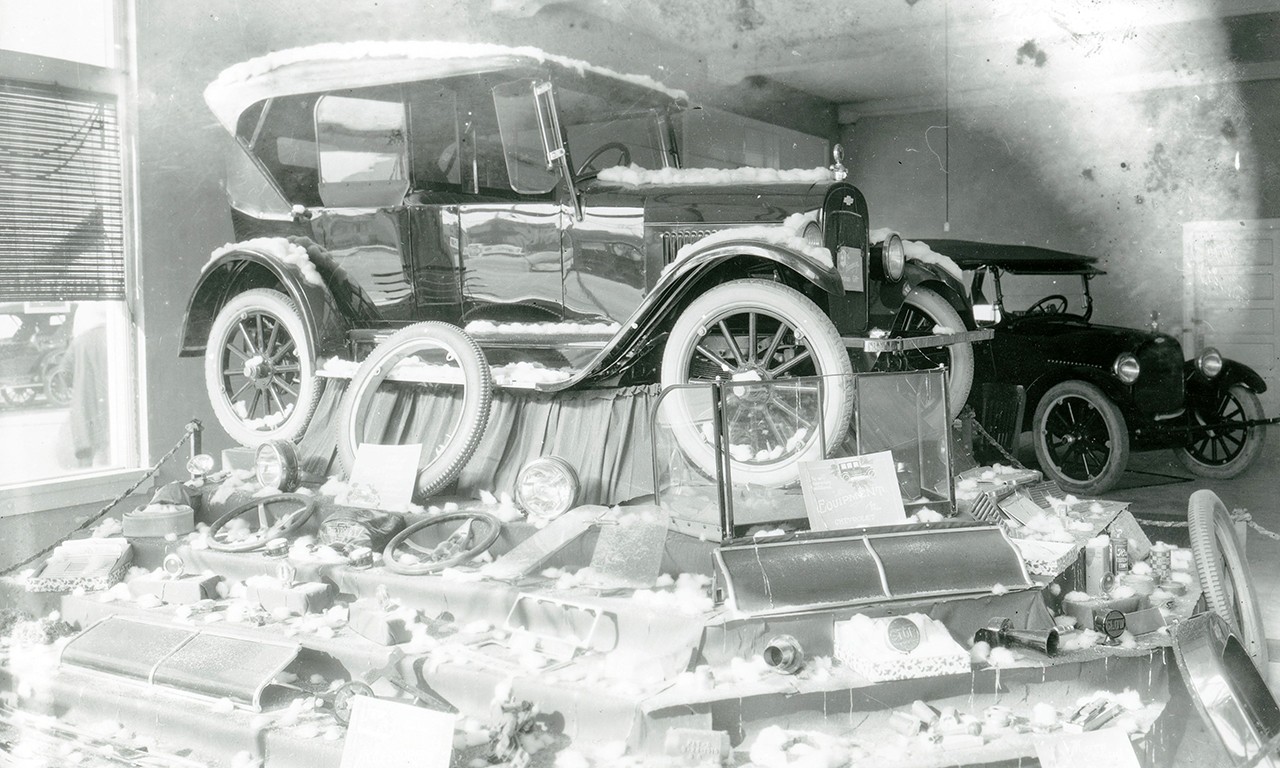 |
B.J. MacMullen’s Equipment for Chevrolet, early 20th Century
Leo Tiede (American, 1889-1968); Santa Ana, California
Photographic print; 8 1/4 x 6 1/4 in.
37057.128
Leo Tiede Photography Collection |
Family Matters
With the newest installment of the thrilling Fast & Furious franchise—a series in which a non-blood related “family” of automotive action heroes engage in everything from street racing to spy craft—having rolled into theaters this past weekend, the Bowers Blog takes the opportunity to look at some of the cars that appear in our photographic collection. While the film franchise has seen its drivers pilot everything from tanks to a rocket car in space, here we look at cars that with a couple of exceptions were made outlandish for marketing purposes. All of the photographs in this post share a common photographer in Leo Tiede, who we have already introduced in Two Photographers Outside of Orange, California.
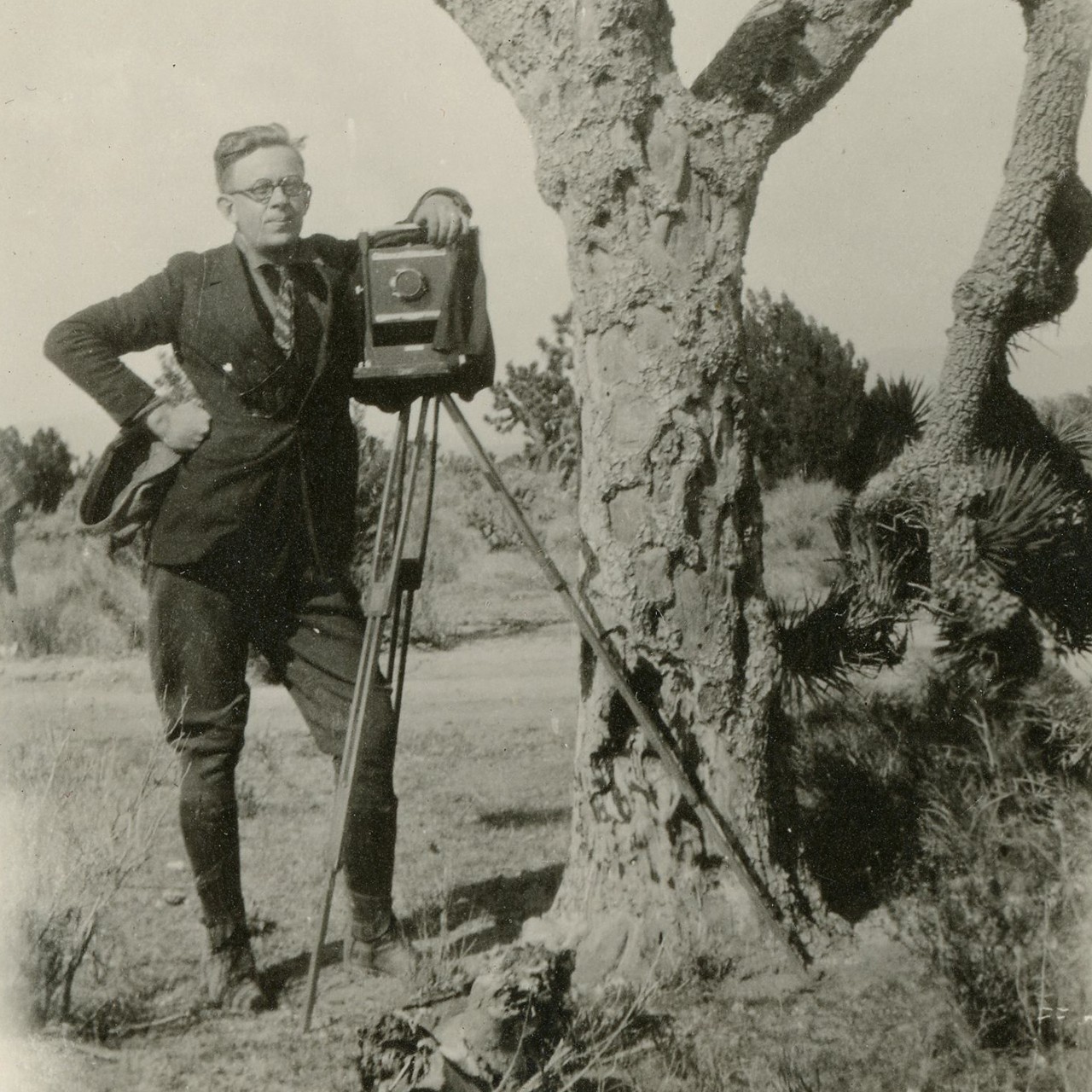 |
Leo Tiede with Joshua Tree, early 20th Century
Unknown Photographer; California
Photographic print; 4 1/2 x 3 in.
37827.1
Leo Tiede Photography Collection |
Need for Tiede: Most Wanted
Just as a quick recap on Tiede, he was one of the most prolific photographers in Santa Ana’s early history. Born in Belmont, Iowa in 1889, he moved to California in 1913. From a young age he took an interest in photography, one which ultimately earned him a living doing editorial photography as the Orange County correspondent for the Los Angeles Times, and later doing the kind of commercial advertising photography seen here. The posthumous donation of more than 1,700 Leo Tiede photographs by his sister and others, if counted collectively, constitutes one of the largest single collections at the Bowers.
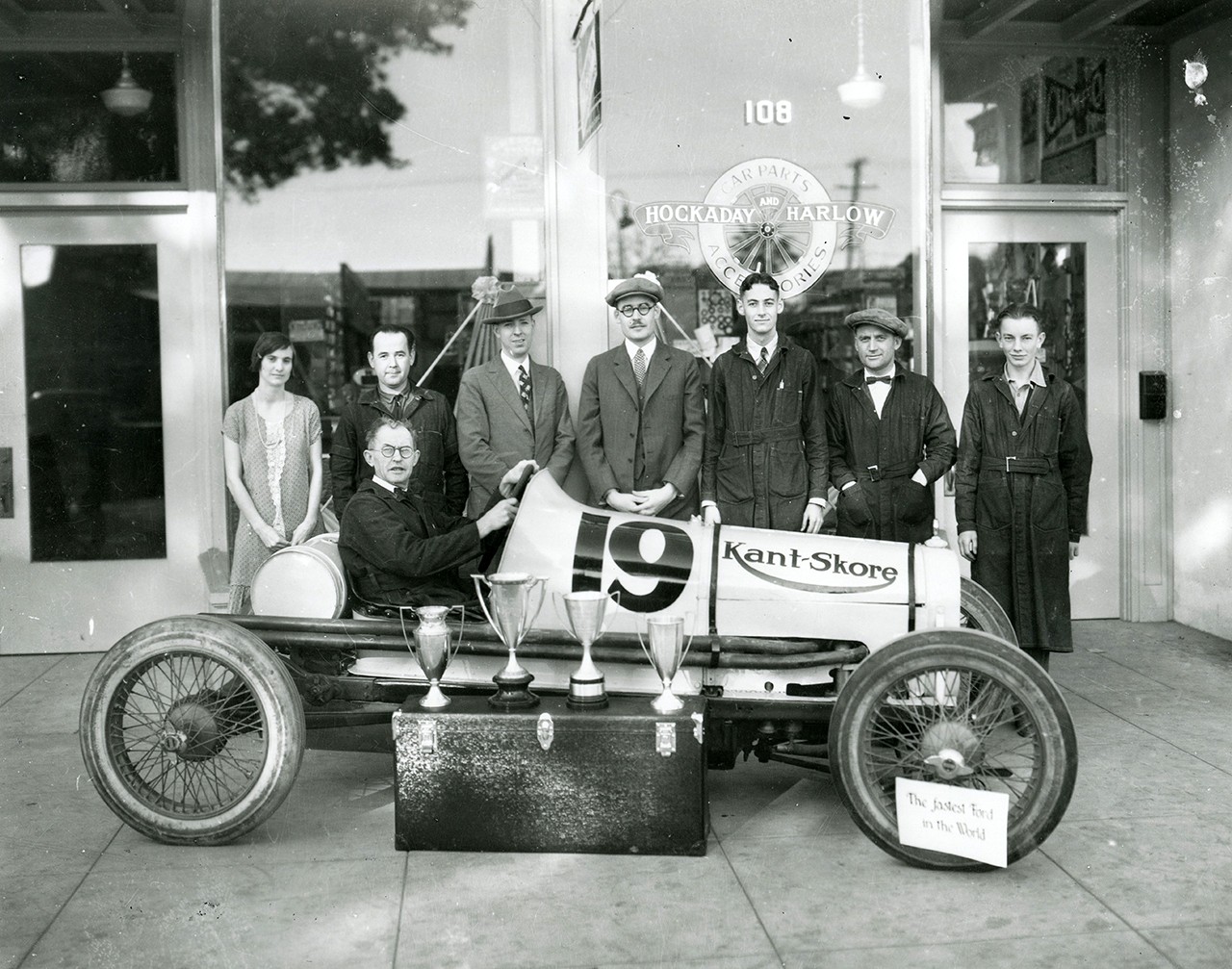 |
The Kant-Skore #19, early 20th Century
Leo Tiede (American, 1889-1968); Santa Ana, California
Photographic print; 10 x 8 in.
37057.141
Leo Tiede Photography Collection |
The Kant-Skore #19
If there is one thing that has long been associated with cars, it is the desire to go fast. Born out of the same impetus that made horse racing such a popular pastime, race cars were used to advertise all aspects of the automotive industry even in its earliest years. This particular flathead Model T racer is Ed Winfield’s #19 Kant-Skore, touted as the “fastest Ford in the world” after a 1924 Southern California win. The name of the vehicle comes from the Kant-Skore Piston Co., a sponsor of the car. Here the vehicle is being used to advertise Hockaday and Harlow Car Parts and Accessories in Santa Ana.
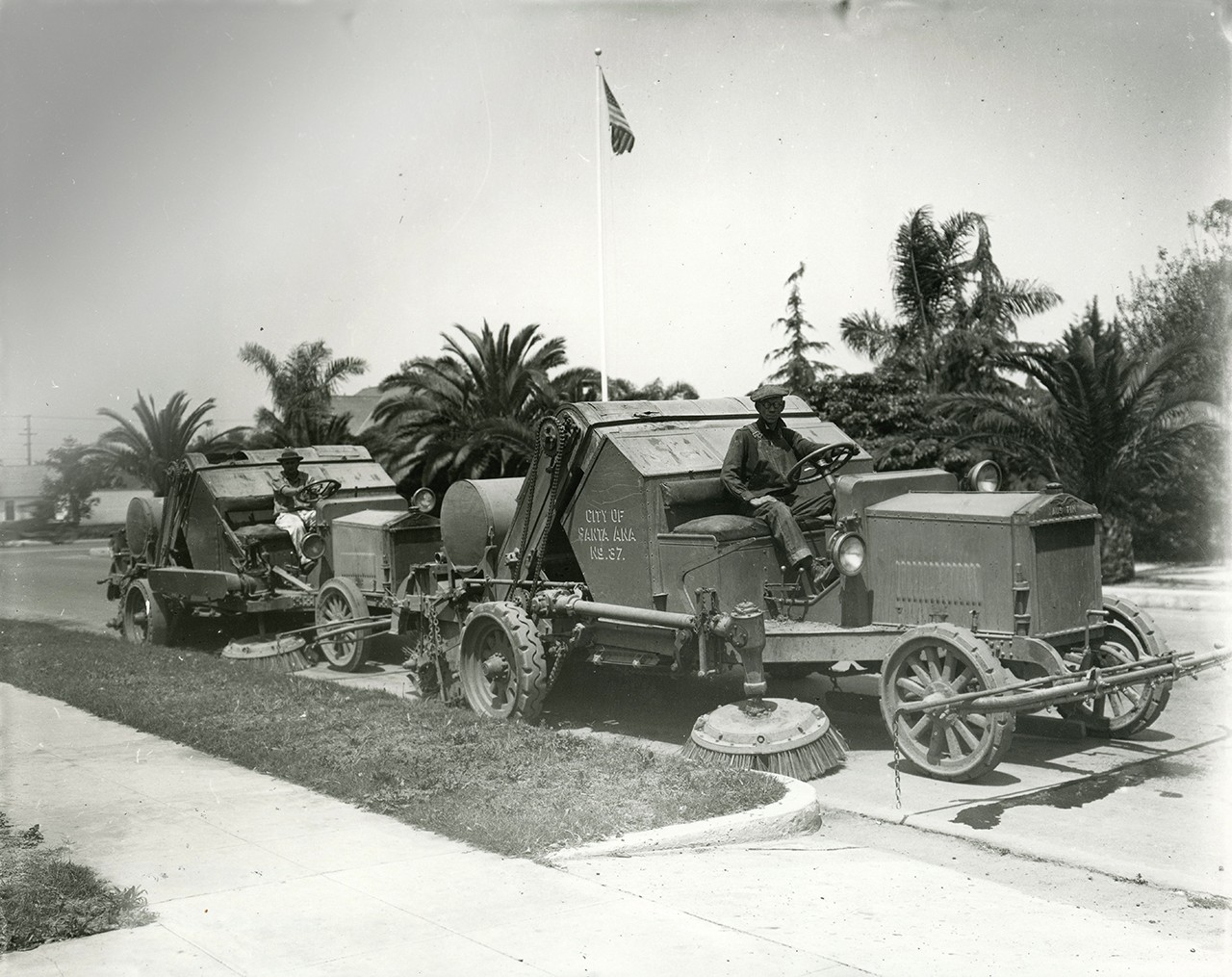 |
Motor Pick-Up Sweepers, early 20th Century
Leo Tiede (American, 1889-1968); Santa Ana, California
Photographic print; 10 x 8 in.
37057.181
Leo Tiede Photography Collection |
Santa Ana Street Sweepers
Though the street sweepers in the above photograph would have been at the time quite commonplace, they are a far cry from the sweepers of today—having the appearance of slightly modified tractors with dumpsters at their rear. The Austin-Western Road Machinery Co.’s 1938 “motor pick-up sweepers” were the height of sweeping technology at the time. They boasted larger, more resilient brooms, hydraulic rather than manual controls for raising the rear broom and elevator, and the relatively recent innovation of using water to wet down the cleaning area before it was swept with the broom. It is unknown whether these photographs would have been taken for the city of Santa Ana for marketing purposes, or if these were happenstance shots by Leo Tiede the hobbyist.
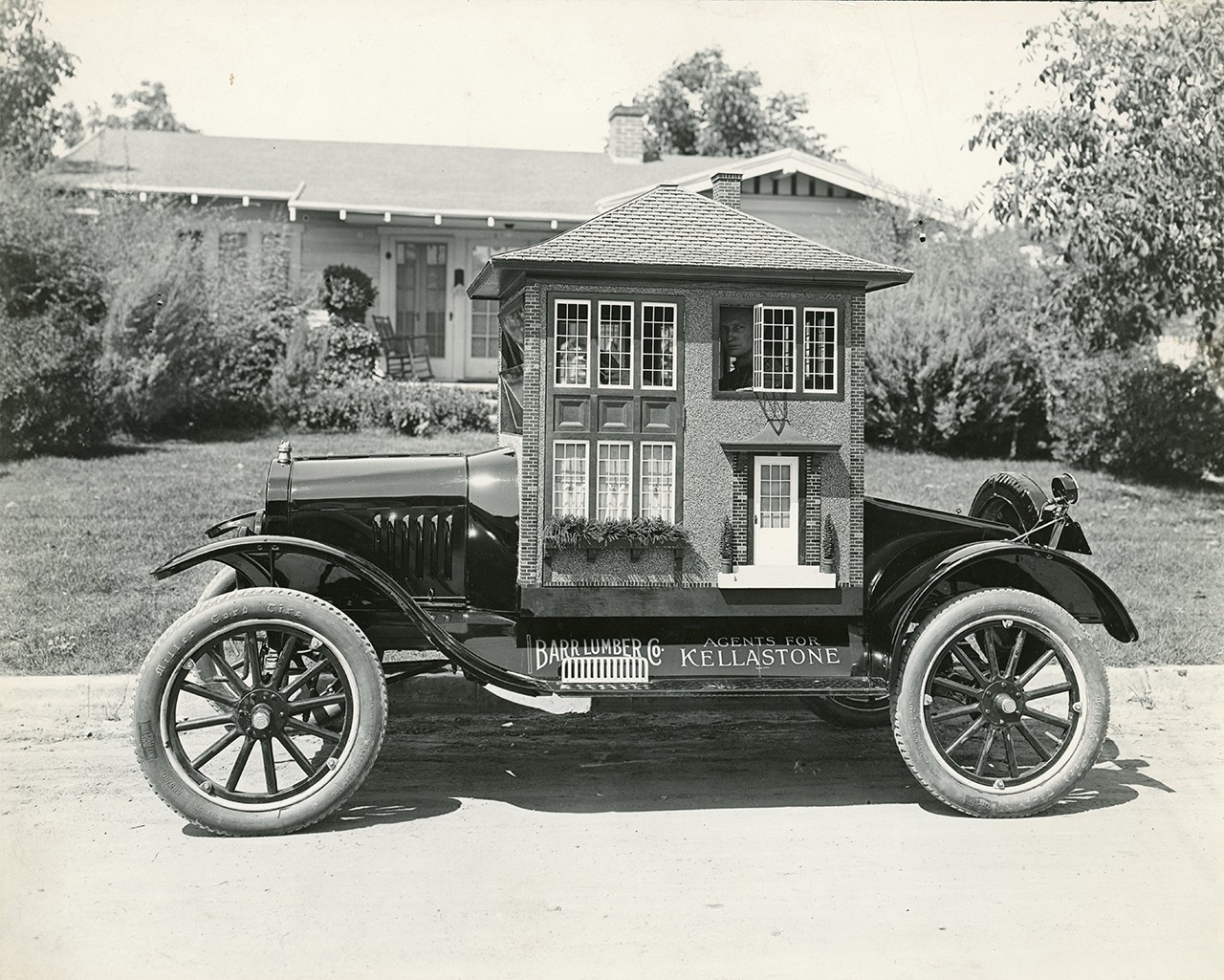 |
Barr Lumber Co. Car, 1923
Leo Tiede (American, 1889-1968); probably Santa Ana, California
Photographic print; 10 x 8 in.
37057.284B
Leo Tiede Photography Collection |
Barr Lumber Co.
Though oddly absent from all dictionary definitions of mobile home, Barr Lumber Company’s miniature house on wheels was a sight to behold—even with a somewhat surly pilot visible through the second story casement windows. This appears to have been a custom build added over an early 1920s Ford Runabout. Otis Herbert Barr (1872-1945) founded Barr Lumber Company in Whittier, California in 1911 and it operated at least legally until its dissolution in June of 2021.
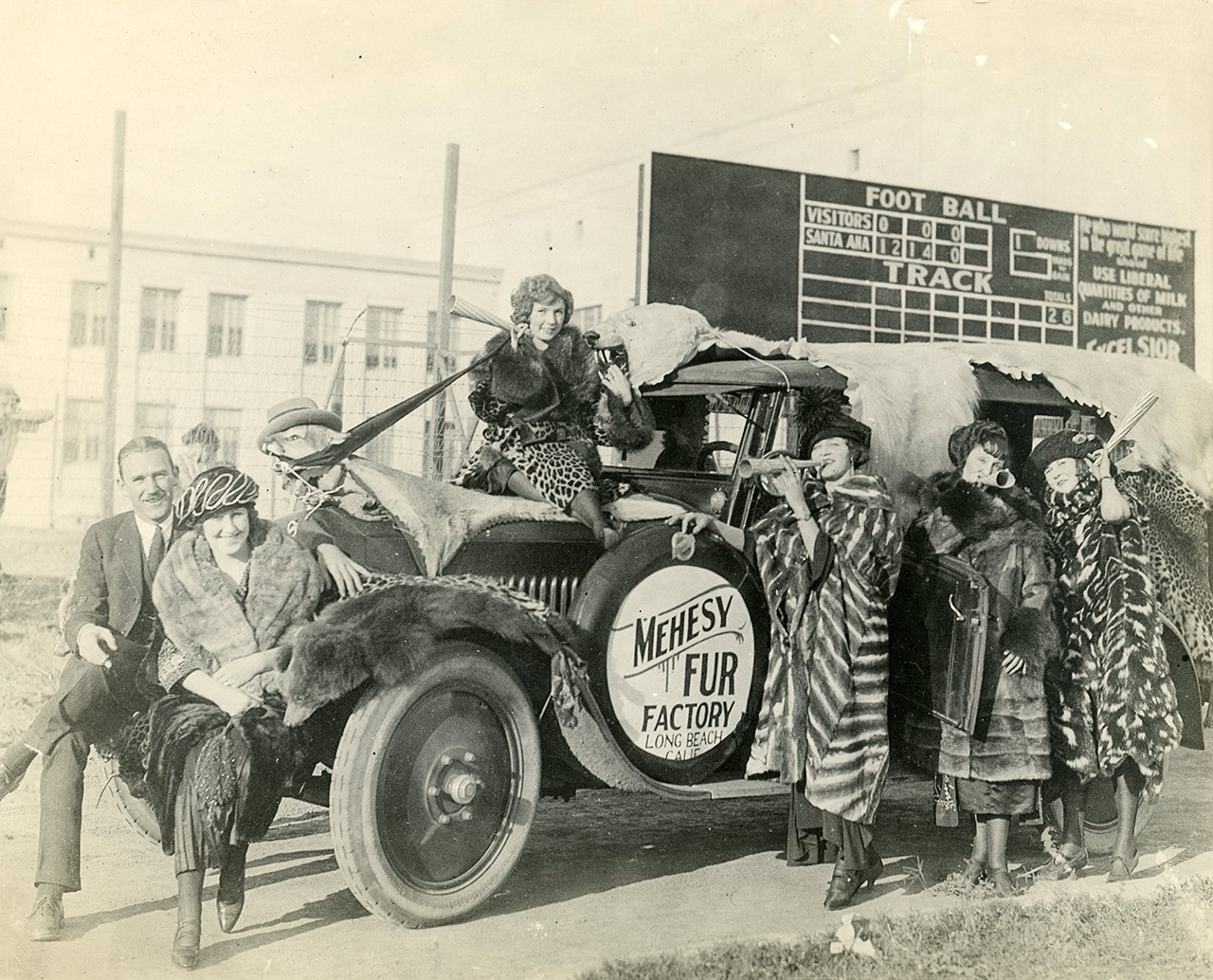 |
Mehesy Fur Factory Car, early 20th Century
Leo Tiede (American, 1889-1968); possibly Santa Ana Stadium, Santa Ana, California
Photographic print; 10 x 8 in.
37057.341A
Leo Tiede Photography Collection |
Mehesy Fur Factory
Created perhaps as some sort of warning for fuzzy wildlife, the Mehesy Fur Company’s novelty car was photographed by Tiede at a stadium in Santa Ana—potentially one on the same site as the current Santa Ana Stadium—in the late 1920s. The skins draped on the car come from mountain lions, leopards, and at least two species of bear. The Mehesy Fur Company was founded in Salt Lake City in 1888 by Edward Mehesy. Records of the Long Beach shop seem to end right around the onset of the Great Depression, potentially indicating that the demand for luxury furs was significantly impacted enough by the market crash that it had to permanently close its doors.
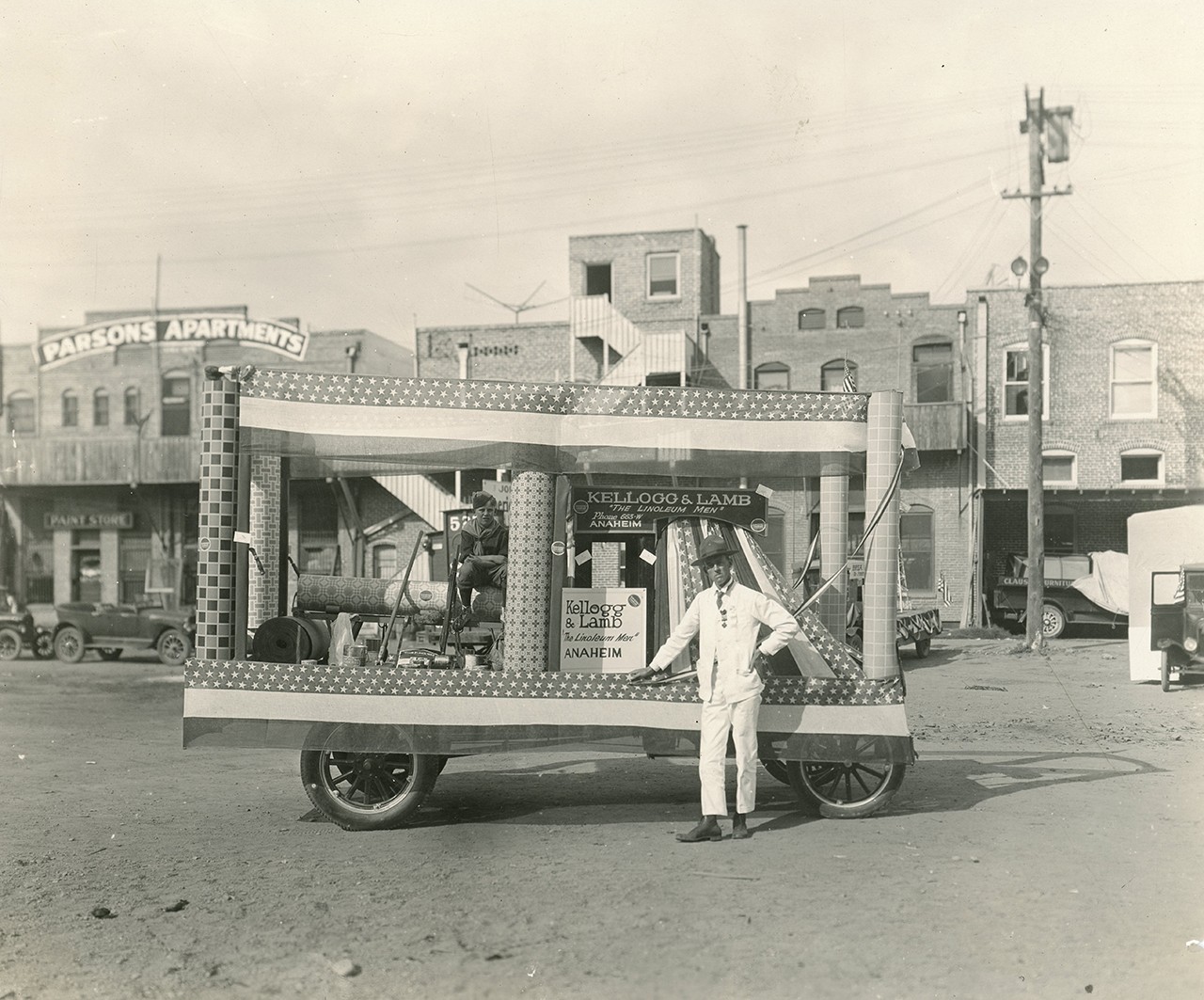 |
Kellogg & Lamb Car, early 20th Century
Leo Tiede (American, 1889-1968); probably Santa Ana, California
Photographic print; 10 x 8 in.
37057.328
Leo Tiede Photography Collection |
Kellogg & Lamb, The Linoleum Men
With the appearance of a portable bounce house deflated of any capacity for sparking joy, this Kellogg & Lamb custom linoleum-clad automobile hit the roads of Orange County around the same time period as most of the other photographs in this post. A lack of notation and an impressive job by Anaheim’s “Linoleum Men” to disguise the cab make it difficult to identify the make and model of the underlying vehicle, but the columnar structure appears to have been built around a flatbed truck. Not much information is available on the company except that they carried Armstrong’s Linoleum, one of the leading brands of linoleum in the early century.
Text and images may be under copyright. Please contact Collection Department for permission to use. Information subject to change upon further research.








Comments